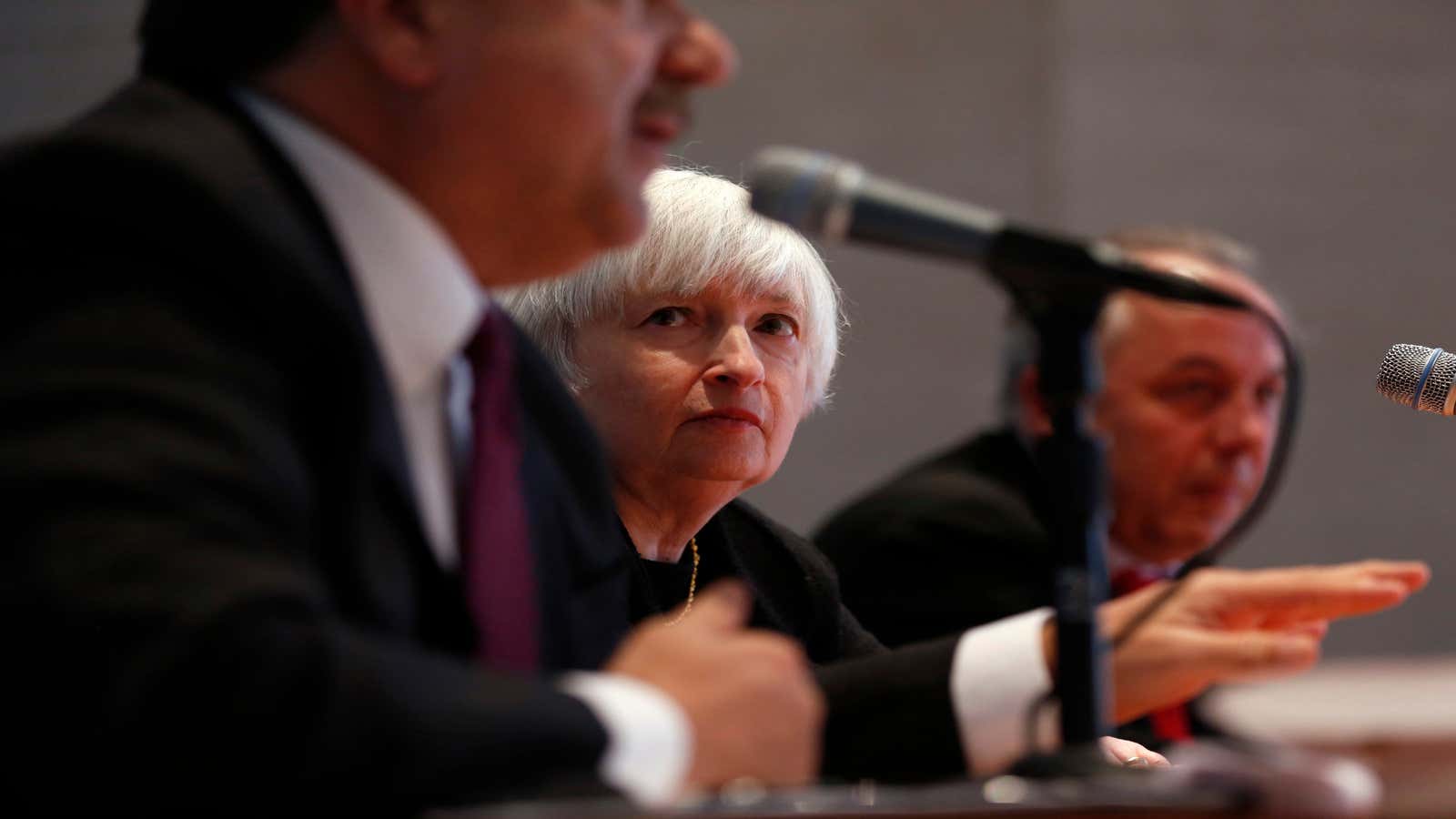The relationship between Wall Street and the next US Federal Reserve chairperson is under scrutiny. Larry Summers raised eyebrows over an alleged cozy relationship with the financial industry, including his two years working at hedge fund D.E. Shaw and consulting to Citibank. That may be one reason he’s no longer a candidate for the job. And yesterday came concerns over Wall Street’s discomfort with Janet Yellen.
But being popular with the finance industry isn’t important. What is: a Fed chair who understands finance and risk. The mandate of the Fed is to deal with inflation and unemployment—the domain of macro economy. But finance, which considers risk and uncertainty, is also important. Risk interacts with macro variables and policy and result in many unintended consequences. (For example, there’s concern that the Fed’s recent asset purchases is sapping the financial sector of the risk-free assets it needs to function.)
A new, controversial trend in central banking is macroprudential policy, which attempts to spot financial vulnerabilities and intervene. Risk and how it moves through the economy is unpredictable, and no one—even the great finance gurus of Wall Street—can consistently predict how and what matters. The least we need from a Fed chair is some grounding in the principles of financial risk and humility to know what he or she can’t control. Regulating the financial sector will also involve insight into how the industry works, what touches what and sources of potential vulnerability.
The study of finance and macro has been siloed in the economics profession. That may be changing—but slowly. We need a Fed chairperson who understands both.
Understanding finance does not require time working on Wall Street, though the two are often correlated. An understanding of the finance is often gained working in the industry. Or it may come from studying finance as an academic, though often high profile finance professors consult in finance. A knowledge of finance often presents profitable job options.
But there is a difference between understanding finance, or even a history working in industry, and being able to effectively regulate it. Paul Volcker worked on Wall Street and no one could call him soft on finance. Mary Schapiro has demonstrated an able understanding of finance, ran the SEC, and works in finance—and has also endorsed Janet Yellen.
We can’t predict how the next Fed chairperson’s relationship with Wall Street will evolve. Discussion on whether the finance industry can take direction from a woman is both insulting and unfair to the finance industry and Yellen. A more productive debate should focus on her qualifications not only as a macroeconomist, but also her abilities as the world’s more powerful financial regulator.
Yellen is an excellent macroeconomist and she has many years of experience as a central banker. But both her research and resume lacks financial experience. Her qualifications may have been sufficient a decade ago, but may not be for the Fed of the future.
